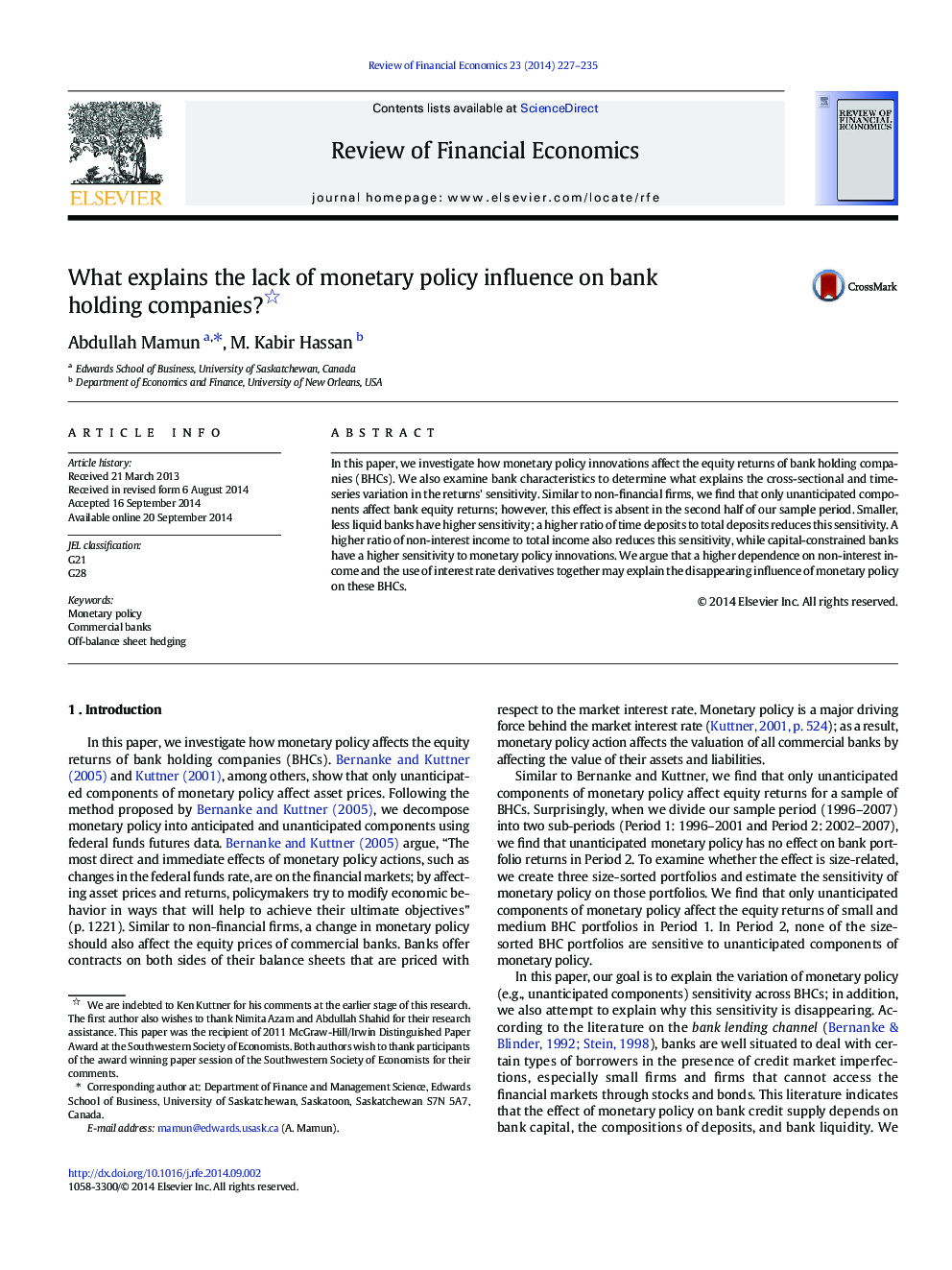| Article ID | Journal | Published Year | Pages | File Type |
|---|---|---|---|---|
| 986857 | Review of Financial Economics | 2014 | 9 Pages |
In this paper, we investigate how monetary policy innovations affect the equity returns of bank holding companies (BHCs). We also examine bank characteristics to determine what explains the cross-sectional and time-series variation in the returns' sensitivity. Similar to non-financial firms, we find that only unanticipated components affect bank equity returns; however, this effect is absent in the second half of our sample period. Smaller, less liquid banks have higher sensitivity; a higher ratio of time deposits to total deposits reduces this sensitivity. A higher ratio of non-interest income to total income also reduces this sensitivity, while capital-constrained banks have a higher sensitivity to monetary policy innovations. We argue that a higher dependence on non-interest income and the use of interest rate derivatives together may explain the disappearing influence of monetary policy on these BHCs.
